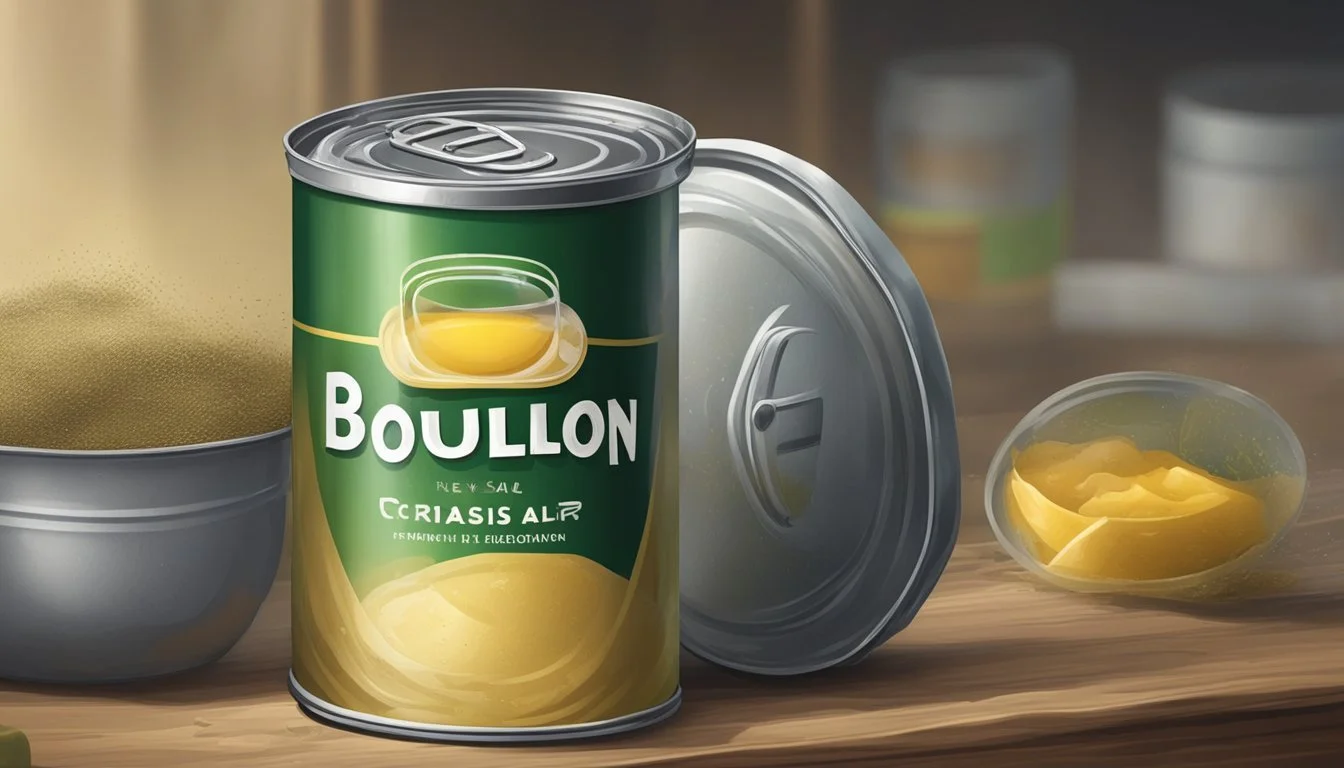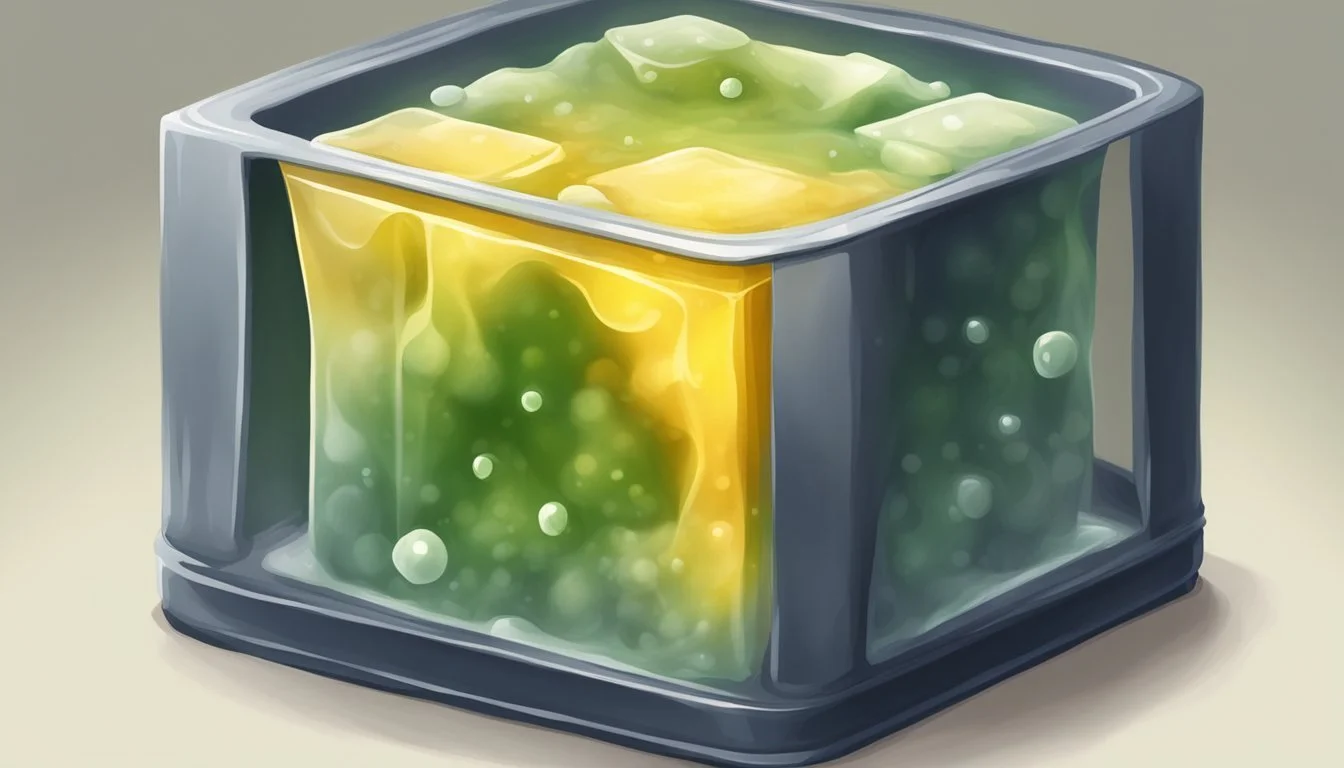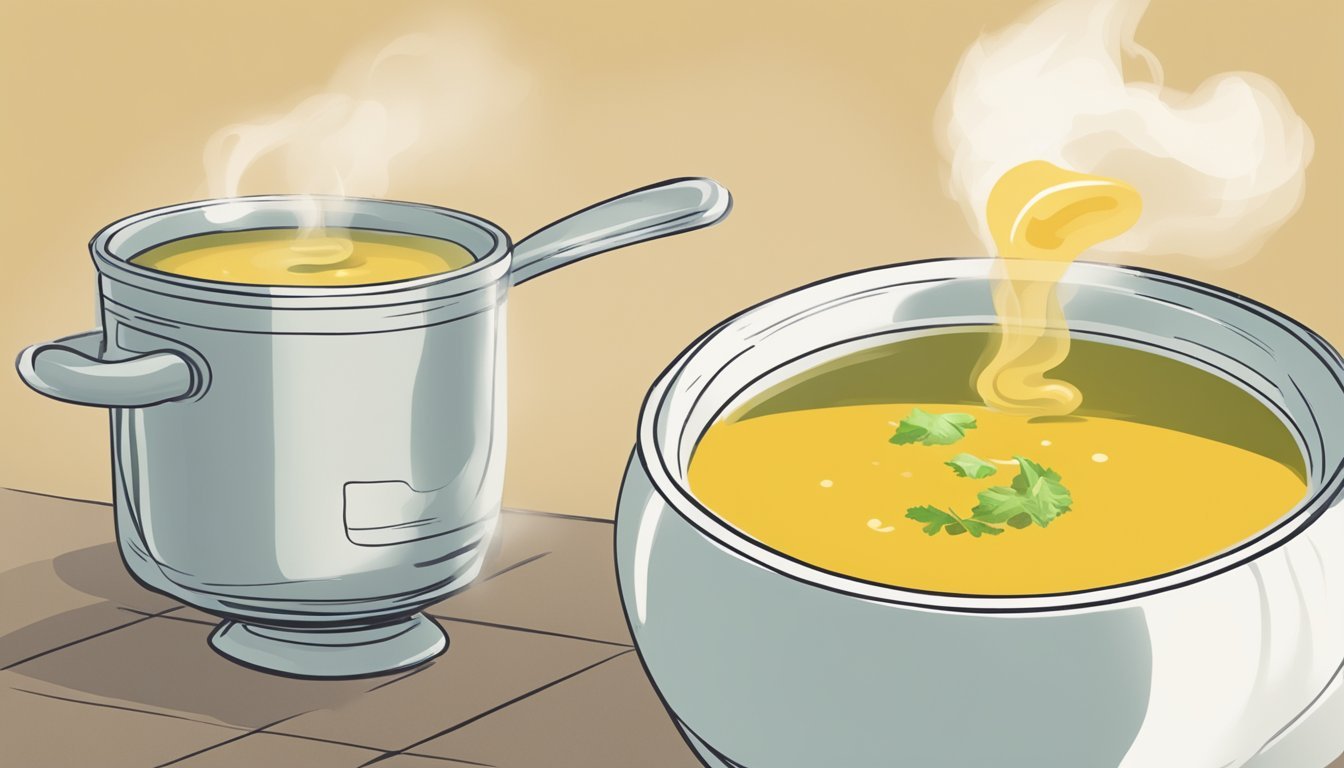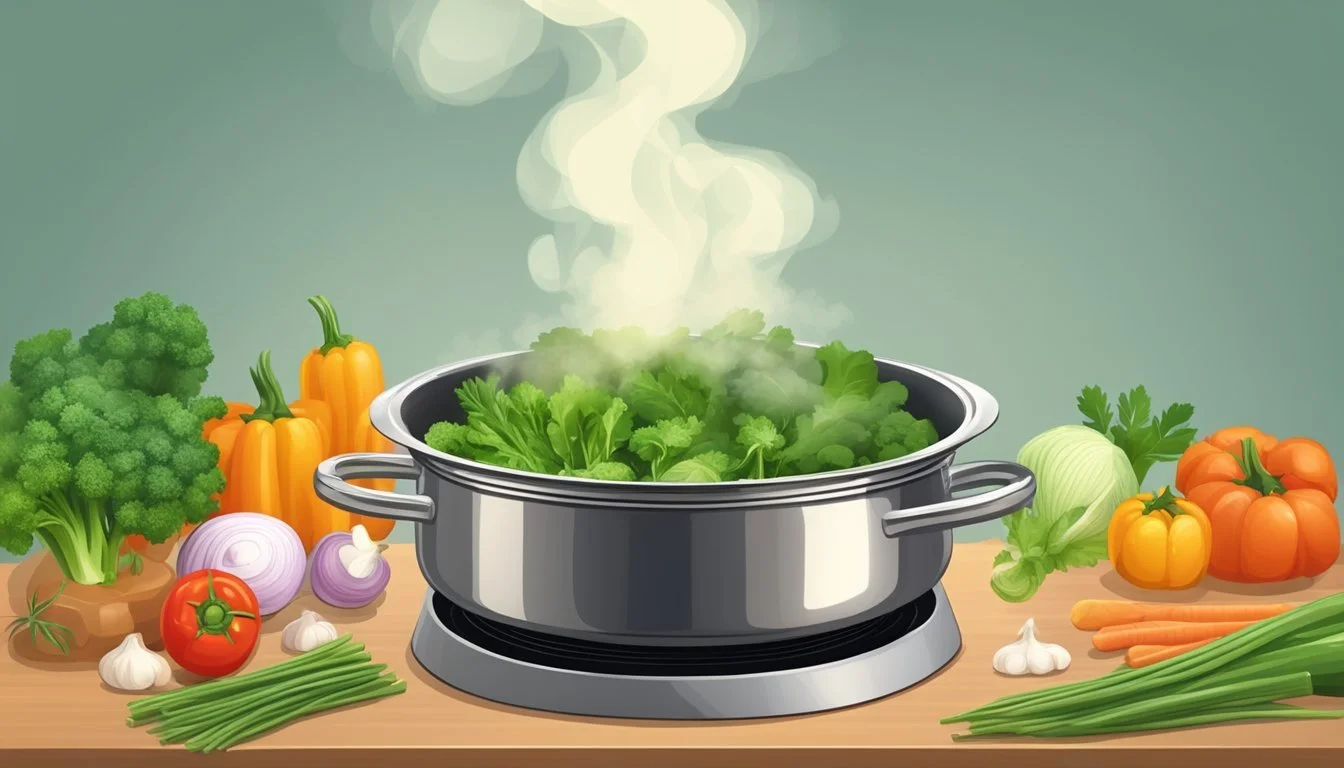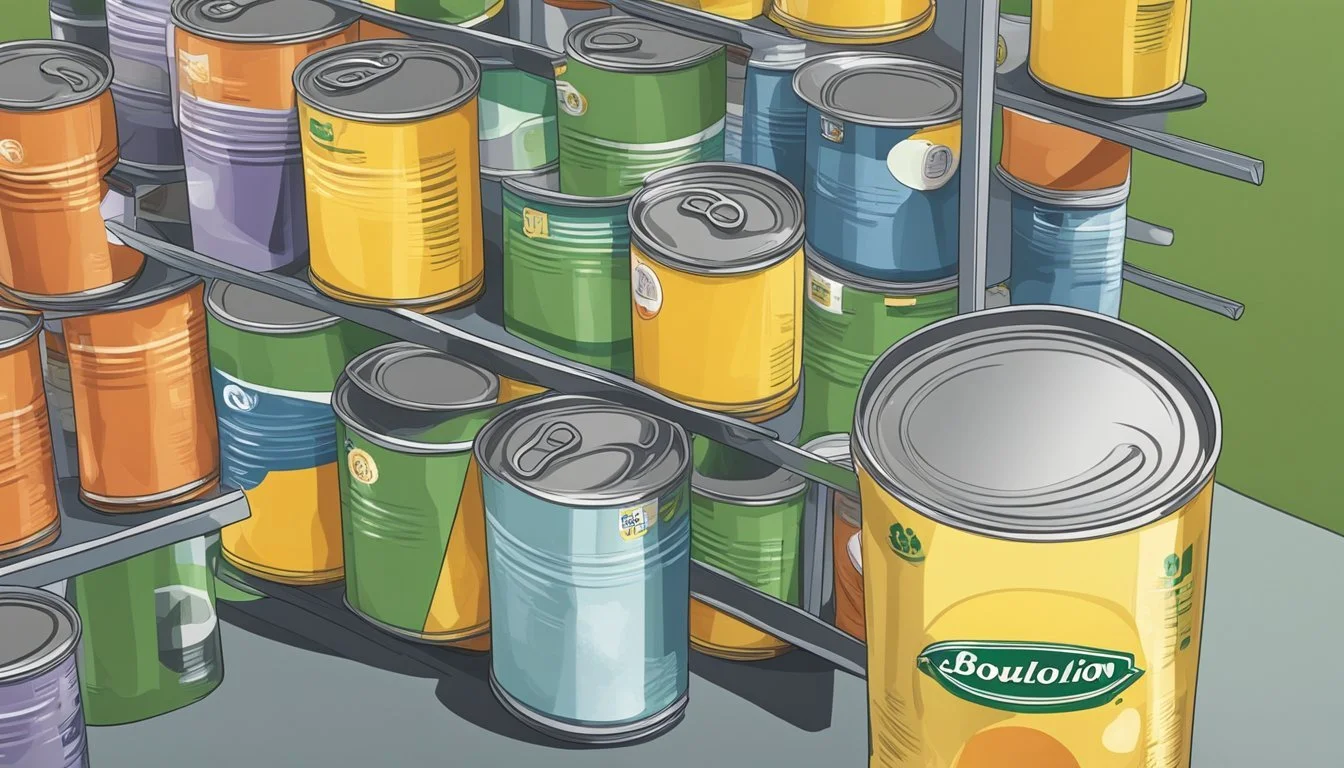Does Bouillon Go Bad?
Understanding Shelf Life and Spoilage Signs
Bouillon, commonly available in cubes or granules, is a flavorful addition to many dishes, but homeowners and chefs alike often wonder about its longevity in the pantry. Comprising a high sodium content, bouillon inherently boasts a long shelf life. This attribute allows bouillon to be stored safely for years when conditions are optimal, specifically, in a cool and dry environment.
Over time, the quality of bouillon may decline, indicated by a change in taste rather than spoilage typical of perishable goods. While bouillon cubes are shelf-stable and do not spoil in the traditional sense, their flavor intensity can diminish. The date on the packaging serves as a guide for optimal taste rather than safety; bouillon can generally be used beyond this date without health concerns, although the culinary contribution to dishes might be less pronounced.
Maintaining quality should be a priority when storing bouillon. Proper storage not only ensures the bouillon remains useful for an extended period but also preserves its taste. It's vital for consumers to understand that while bouillon does not go bad quickly or easily, the sensory rewards it delivers can be best realized before the taste starts to degrade.
Understanding Bouillon
Bouillon is a cornerstone in culinary practices, serving as a base for soups, sauces, and an enhancement for various recipes. It comes in several forms and compositions, each with its unique blend of ingredients tailored for different tastes and dietary preferences.
Types of Bouillon
Bouillon can be primarily found in the following forms:
Cubes: Compact and dehydrated, bouillon cubes are a popular choice due to their long shelf life and convenience.
Powders: Bouillon in powdered form is more easily dissolvable, which makes it suitable for quick meal preparations.
Granules: Similar to the powder, but typically coarser in texture.
Liquids: Ready-to-use liquid bouillon is the closest to homemade stock in terms of freshness and flavor.
Each type of bouillon comes in an array of flavors including beef, chicken, vegetable, and fish, catering to a wide range of tastes and suitable for different kinds of meals.
Composition and Ingredients
The typical composition of bouillon involves:
Meat or Vegetables: Depending on the variety, these provide the fundamental flavor. Chicken and beef are common for non-vegetarian variants, while carrots, onions, and celery are staples in vegetarian options.
Salt: Acts as a preservative and flavor enhancer; present in high amounts, especially in cubes and granules.
Seasonings and Spices: Garlic, pepper, and herbs such as thyme and bay leaf introduce depth and complexity to the flavor profile.
Preservatives: Utilized mainly in commercial bouillons to extend shelf life.
In homemade bouillon, one controls the ingredients, which often makes it healthier due to the lack of additional preservatives and high levels of salt.
Also, homemade recipes can be tailored to specific dietary needs, such as using only fresh vegetables and seasoning for a vegetarian diet or quality cuts of beef or chicken for a more traditional stock flavor. Homemade versions focus on simmering the ingredients to extract the maximum flavor and can often be more nutrient-rich than store-bought options.
Shelf Life and Expiration
When considering bouillon, one must differentiate between shelf-stable options and homemade variants, as well as understand how to interpret expiration dates. These factors are crucial in assessing the longevity and maintenance of quality for bouillon.
Shelf-Stable vs. Homemade
Shelf-stable bouillon, including cubes and granules, typically possesses a prolonged life due to high sodium content, acting as a preservative. These products often remain safe for consumption for up to two years past the printed expiration date when stored correctly.
Proper Storage:
Keep in a cool, dry area.
Ensure they are sealed properly.
Contrastingly, homemade bouillon should be used much more promptly due to the absence of preservatives. Homemade variants generally last for:
Refrigerator: 3 to 4 days
Freezer: 2 to 3 months
To maintain peak quality, it's important to store homemade bouillon in an airtight container, following proper refrigeration or freezing guidelines.
Reading Expiration Dates
The terms expiration date, best by date, and sell by date can cause confusion. For bouillon, the best by date often indicates the period at which the product is expected to retain peak quality, not necessarily safety.
Interpreting Dates:
Best by date pertains to optimal flavor.
Bouillon can remain usable beyond this timeframe, though taste may diminish.
Always inspect for changes in odor, color, and texture, as these can signal spoilage regardless of dates.
It is essential to note that the dates are indicative under ideal storage conditions, and deviation from these guidelines can lead to a decrease in quality before the printed dates.
Signs of Spoilage
When assessing whether bouillon has spoiled, one should look for specific changes in its appearance, smell, and taste. These indicators are reliable markers to determine if the quality of the bouillon has been compromised.
Visual Cues
One should examine the bouillon for any changes in color or presence of mold. A shift from the original color to a duller hue can suggest spoilage. The growth of mold, particularly in bouillon that has been exposed to moisture, is a definite sign that it should not be consumed.
Olfactory Indicators
Smell is a telltale sign when determining the quality of bouillon. If the bouillon emits a strong, unpleasant odor, this can indicate it has gone bad. Bouillon should not have a foul or off-putting smell; any significant deviation from its expected aroma is a cause for concern.
Taste Alterations
Although tasting should be done cautiously, a loss of flavor or a change to a strange taste can signal spoilage. Bouillon that tastes exceptionally dull or has a flavor that seems to weaken could also suggest that it's no longer suitable for use.
Storage Solutions
Proper storage is crucial for maintaining the quality and extending the shelf life of bouillon. By understanding the optimal storage conditions and methods to extend product life, consumers can ensure their bouillon remains fresh and flavorful for as long as possible.
Optimal Storage Conditions
Bouillon thrives in conditions where moisture and humidity are minimized. The ideal storage space is a cool, dry place such as a pantry or cupboard far from sources of heat and away from direct sunlight. Temperature fluctuations can compromise the bouillon’s integrity, so a consistent environment is preferable.
Temperature: Keep below 70°F (21°C).
Humidity: Aim for low humidity to prevent clumping.
Sunlight: Store in a dark place to avoid degradation.
Air: Limit exposure to air by using airtight containers.
Extending Shelf Life
To extend the shelf life of bouillon further, one might consider these additional precautions:
Vacuum Seal: Removing air from packaging, such as using mylar bags with a vacuum seal, can significantly prolong the shelf life.
Airtight Container: Store bouillon cubes or granules in airtight containers to protect against moisture and air.
Freezing: Although not necessary, freezing bouillon can extend its life, provided it is well-protected from freezer burn.
Methods Benefits Vacuum Sealing Reduces air exposure, minimizes moisture absorption Airtight Storage Prevents contamination, maintains flavor integrity Freezing An option for very long-term storage
By adhering to these storage solutions, consumers can enjoy the robust flavors of bouillon without compromise for an extended period.
Safety and Consumption
When considering bouillon cubes or granules, it's essential to address both their safety post-expiration and the appropriate time frame for consumption to ensure flavor and nutritional benefits remain intact.
Evaluating Safety
Expiration Date: Bouillon cubes have a long shelf life due to their high sodium content, which acts as a preservative. Typically, they can remain safe to consume for 1-2 years past the expiration date on the package when stored under ideal conditions. However, bouillon cubes do not become unsafe right after the expiration date has passed.
Storage Conditions: To maintain their safety, bouillon cubes should be kept in a cool, dry place, away from any moisture or direct sunlight. Any deviation from these conditions may compromise their safety and decrease shelf life.
When to Consume
Flavor Quality: While the safety of bouillon may be retained, its flavor and nutritional value can decline over time. Bouillon cubes are best consumed when fresh for optimal taste. If they are kept beyond the 1-2 year window post-expiration, they may still be safe but are likely to have a less vibrant flavor profile.
Visual and Olfactory Indicators: Before use, it's advisable to inspect bouillon for changes in appearance or smell. Should there be any signs of spoilage, such as an off odor or the presence of mold, they should not be consumed. Here's a quick checklist for evaluating bouillon before use:
Appearance: Check for any unusual color changes or signs of moisture.
Smell: Discard the bouillon if it has an off-putting or stale smell.
Texture: If the cubes are crumbly or damp, this might be an indicator of spoilage.
In summary, bouillon cubes are generally safe to consume past their expiration date if properly stored, but their quality is best when used within the suggested time frame.
Cooking with Bouillon
Bouillon cubes and powders are essential in infusing flavor into various dishes, providing a base for soups, stews, and sauces. They are versatile seasonings that enhance cooking by offering a depth of flavor.
Recipes and Uses
Soups and Stews: Bouillon is commonly used to create a flavorful base for soups and stews. It imparts a rich, umami taste that can be the foundation for both meat-based and vegetarian dishes (What wine goes well with vegetarian dishes?).
Sauces and Gravies: A bouillon cube or powder can enrich sauces and gravies with complexity, eliminating the need for stock.
Seasonings: They can act as a dry rub or seasoning for proteins and vegetables prior to cooking to intensify the flavor profile.
Here are specific ways bouillon is utilized in recipes:
For a classic chicken noodle soup, dissolve chicken bouillon in water to form the broth base before adding noodles and chicken.
In vegetarian dishes, vegetable bouillon provides a hearty flavor without the use of meat.
When preparing a beef stew, beef bouillon can serve as an essential seasoning component, elevating the savoriness of the dish.
Tips for Dissolving Bouillon
To ensure that bouillon dissolves effectively in liquid, following the right steps is crucial:
Water Temperature: Use hot water to dissolve bouillon cubes or powder quickly and to ensure an even distribution of flavor.
Whisking: Vigorous whisking can help break down the cube or powder and integrate it into the liquid without clumps.
Proportions: Stick to the recommended proportions on the packaging to prevent overly salty or diluted flavors.
By incorporating these tips, one can fully unleash the potential of bouillon as a cornerstone of flavor in cooking.
Troubleshooting and Alternatives
In maintaining bouillon's quality or finding suitable alternatives, understanding common issues and solutions is crucial, and knowing how to substitute bouillon in recipes is essential for uninterrupted cooking.
Common Issues and Solutions
Bouillon may degrade over time due to exposure to moisture, heat, and air. Common indicators of spoilage include mold growth, off-odors, and a damp texture. If any of these signs are present, the bouillon should be discarded.
Storage Solutions:
Always store bouillon in a dry area away from heat sources.
Use an airtight container to protect it from moisture and contaminants.
Ensure the storage environment is cool to prolong shelf life.
Frequently Asked Questions:
Q: Can humidity affect my bouillon cubes?
A: Yes, high humidity can cause the cubes to clump or mold. Store them in a tightly sealed container to prevent this.
Q: How far from heat sources should I keep my bouillon?
A: Keep bouillon at least several feet away from ovens, stoves, and direct sunlight.
Substitutes and Replacements
When bouillon is unavailable or has gone bad, there are several alternatives that can be used in recipes. Each substitute may affect the taste and texture of the final dish, so it should be chosen based on the desired outcome.
Substitute Table:
Substitute Best Used For Note Broth/Stock Soups, stews, gravies Homemade or store-bought, similar to bouillon Soy Sauce Marinades, sauces Adds umami flavor, but use sparingly due to saltiness Wine or Beer Braising liquids, stews Adds depth of flavor, but consider alcohol content Herbs and Spices Seasoning blends Customize the mixture to match the dish's profile
Troubleshooting Tips:
If using liquid substitutes like broth, adjust the liquid amounts in the recipe to avoid a watery dish.
When creating a homemade substitute, season gradually and taste often to prevent overpowering the dish.
Conclusion
Bouillon cubes, recognized for their compact convenience and long shelf life, are a staple in many kitchens. With proper storage—kept in a cool, dry place and properly sealed—they maintain their quality and flavor for an extended time, typically 1 to 2 years beyond their expiration dates.
Storage Recommendations:
Location: Store in a cool, dry area.
Packaging: Ensure the original packaging or an airtight container is used.
Humidity: Protect from moisture which can lead to spoilage.
Spoilage is not common due to the high sodium content, but it can occur if the cubes are exposed to moisture or kept past their prime. Consumers should be mindful of any changes in appearance, smell, or taste, which indicate that the bouillon should be discarded.
When used in recipes, bouillon provides a rich flavor base. It's a quick, effective alternative to homemade broth and conducive to countless dishes. Despite their durability, users are encouraged to check for spoilage signs and acknowledge that older cubes may result in a less potent taste.
In conclusion, bouillon cubes are a versatile and shelf-stable product. Attentiveness to storage conditions ensures that these kitchen essentials retain their intended flavor, contributing to delicious meals.

